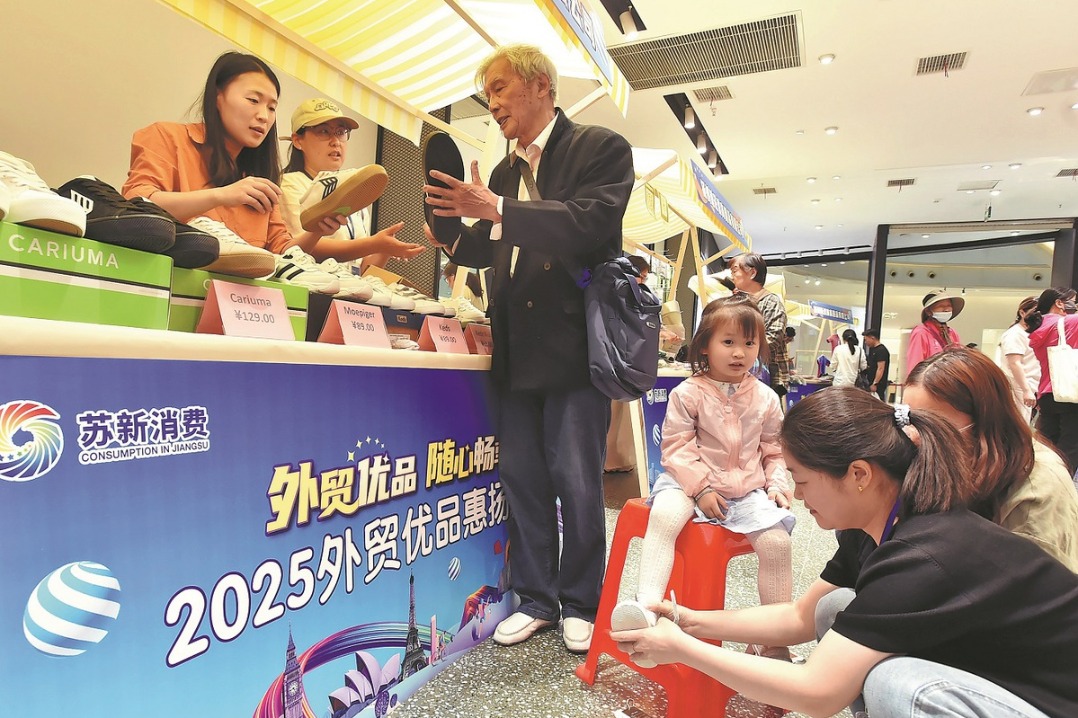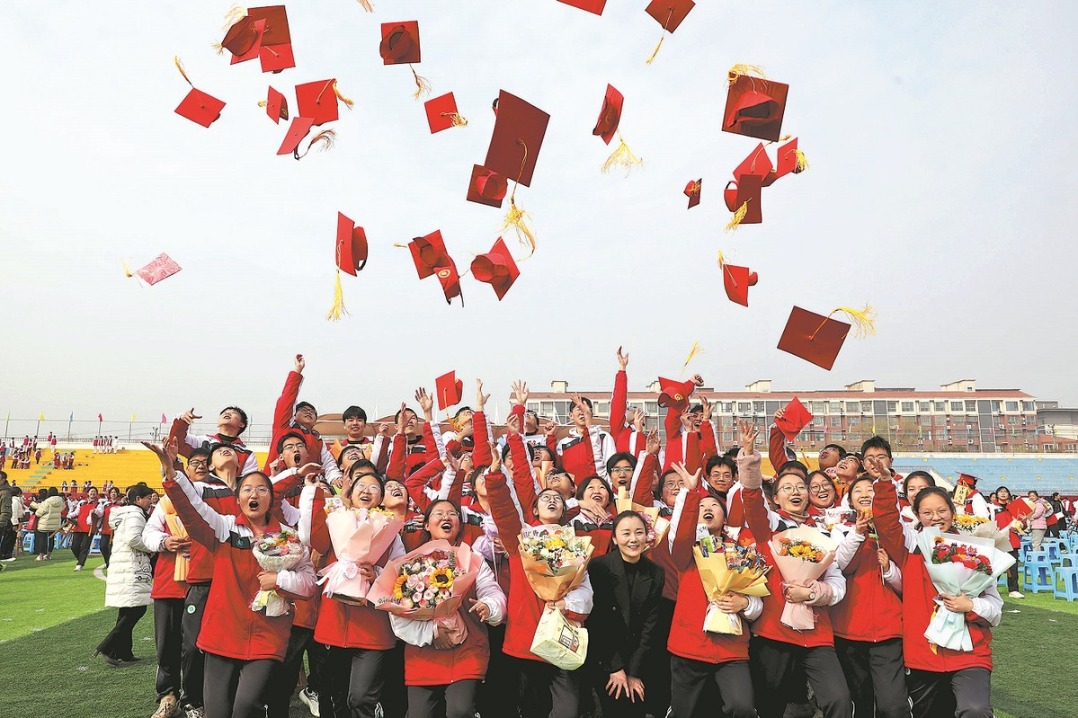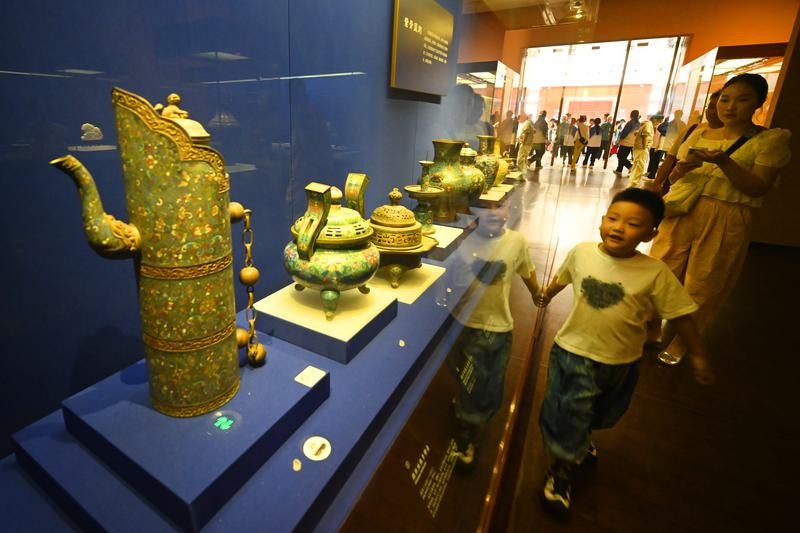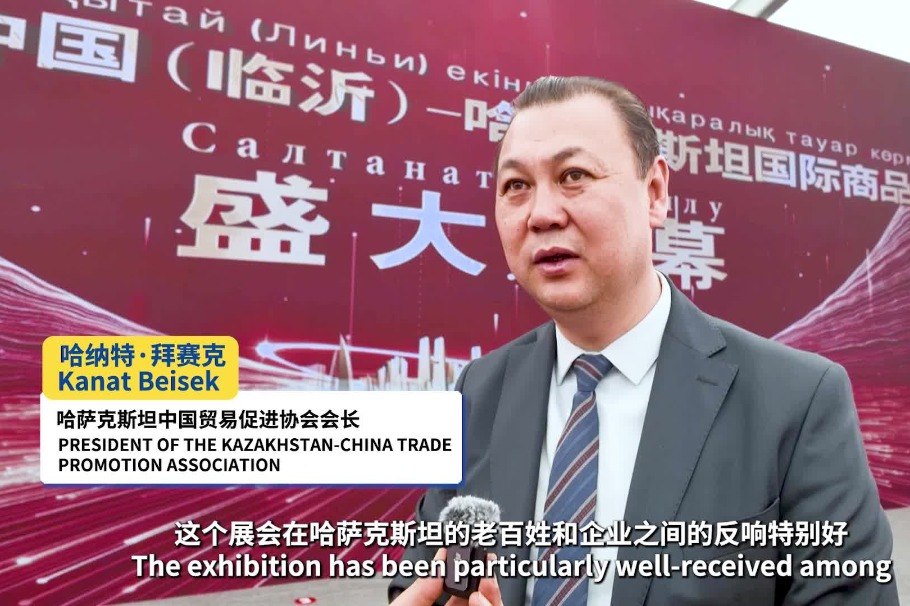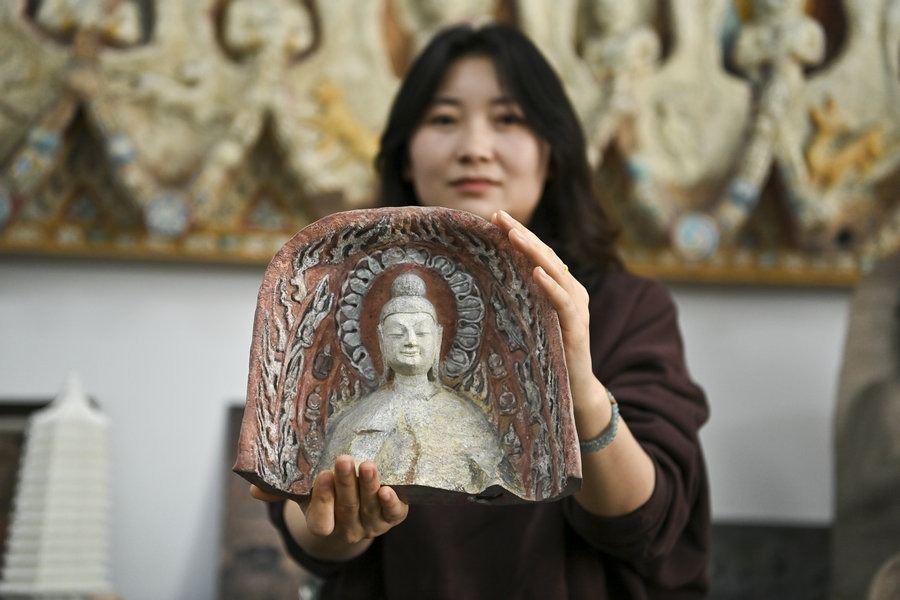Domestic market a golden opportunity
Adjusting to local preferences to capitalize on products facing tariffs from US trade conflict is key

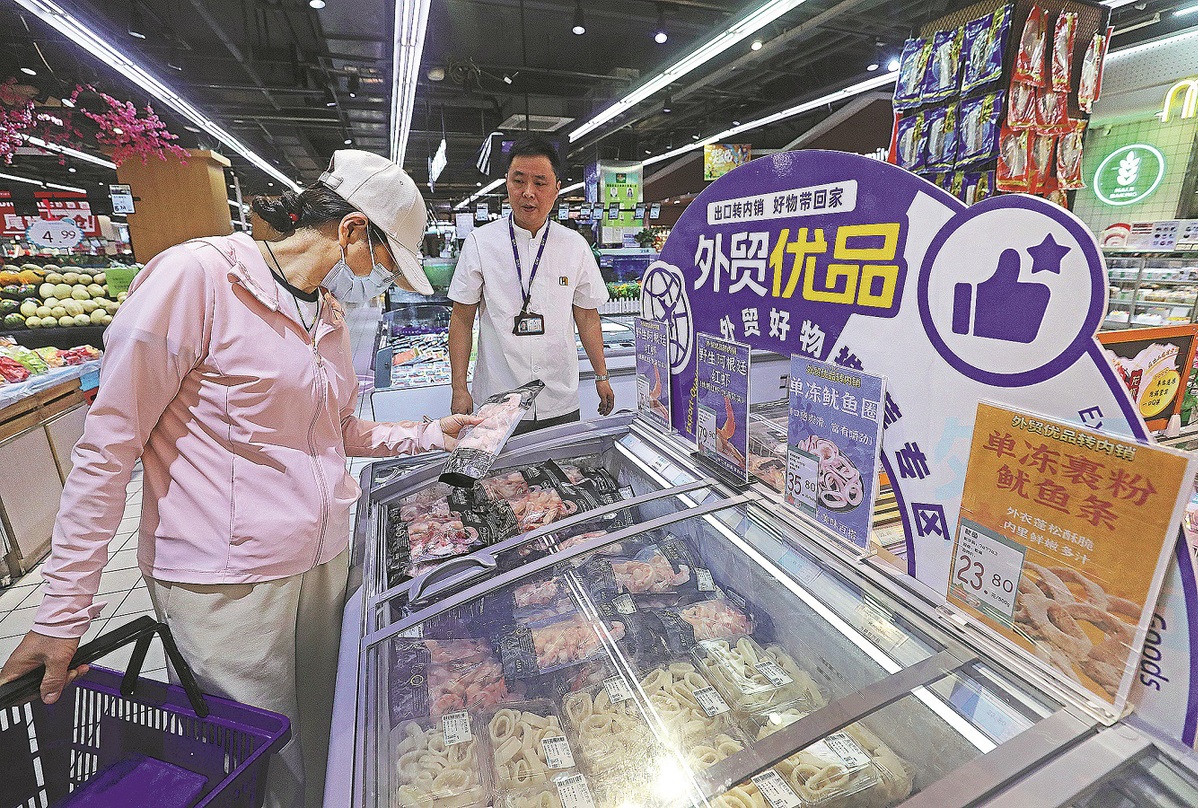
Hangzhou Kara Pet Products Co Ltd, a foreign trade firm that mainly makes cat stands, dog beds, plastic feeders for pets and dog chains, said it has exported products to multiple countries and regions such as the US, Europe, Australia and Japan, and its annual output value has exceeded 200 million yuan ($27.8 million). The company's recent business has been affected by tariff uncertainties.
"For products we have finished manufacturing, US customers didn't cancel the orders and they asked us to suspend the shipments. Facing such a situation, we believe that we still need to consider building overseas factories," said Chu Qinqin, founder of Hangzhou Kara Pet Products.
Chu said orders from the US accounted for one third of its total orders, and the company plans to further expand its business in other countries. In the past few years, it expanded the overseas markets in Japan, Russia and Brazil, and businesses from those markets began to pick up last year with growing demand from consumers.
"The suspension of the US orders has little impact on the operation of the entire company, and we remain an optimistic attitude. We also sell in China, with a change of styles of the products, despite the number of orders being much smaller than the exports," Chu said.
She added that if foreign trade firms would like to further shift the businesses domestically, they need to get used to process smaller orders, as people tend not to stock up goods in China, given intense competition.
Peng Jianzhen, president of the China Chain Store and Franchise Association, said with the ongoing consumption upgrade trend, China has a large number of opportunities for exporters to expand local sales if there are supplies of high-quality, new type products that meet the demand of domestic consumers.
"For China's foreign trade firms, they have many products that sell well in developed countries. If they make some adjustments to cope with the demand of domestic consumers and domestic standards, there is room for further growth," Peng said.
Guangzhou Boqun Textile Technology Co Ltd, a textile maker of knitted and woven products, said due to uncertainties of the foreign trade business, it plans to expand sales channels in China to offset the impact.
Last year, the Guangzhou, Guangdong province-based company's foreign trade business accounted for 60 percent share of the total. Despite its foreign trade business volume not being significant in the US, tariff uncertainties have had a negative impact on the firm.
"This year, we plan to shift our focus to the domestic market due to tariff policies and intensified competition in foreign trade. Domestic customers have indicated a growing demand for some foreign trade products," said Li Zheyu, general manager of Guangzhou Boqun Textile Technology.
Enterprises that have already established their (brand-building) strategies have indicated stronger overall risk resistance abilities and are relatively less affected by external factors such as trade frictions, said Ashley Wu, senior director of business development of the Trade Desk in China. The Trade Desk is a California-based global advertising technology company.













